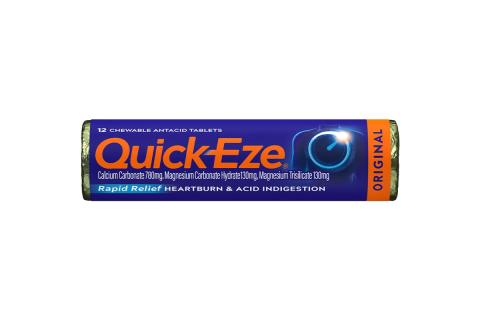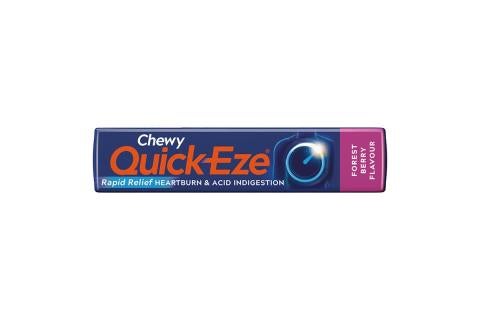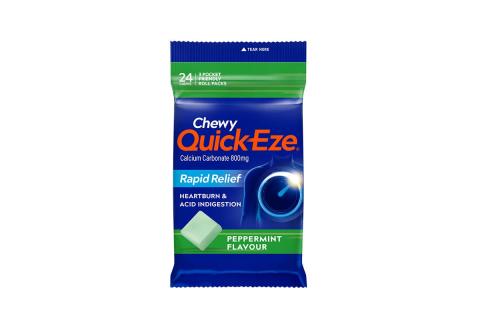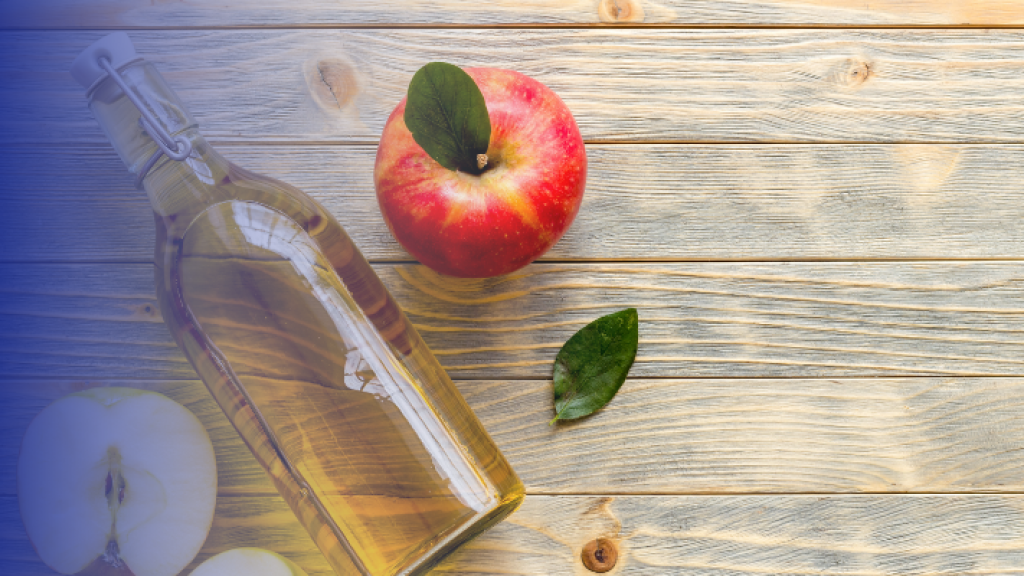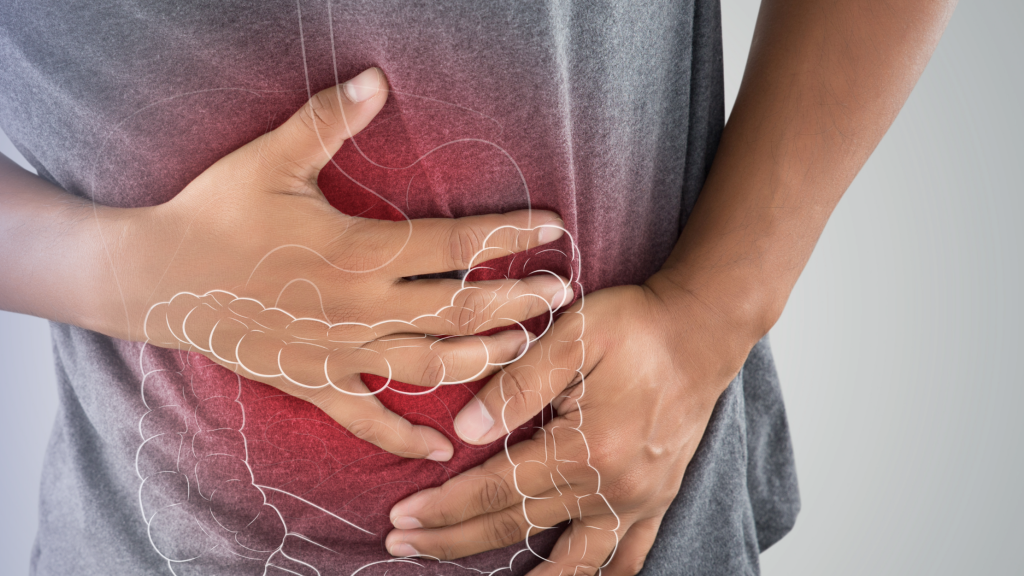Heartburn During Pregnancy
Pregnancy can be a journey of joy and transformation, filled with the anticipation of welcoming a new life into the world. However, as the human body changes, it also comes with its own set of unique challenges. For many women, heartburn is right at the top of that list. If you've found yourself asking, "Why is heartburn so common during pregnancy?" or "Can I take Quick-Eze® during pregnancy?", we’re here to help. Gain a better understanding of heartburn during pregnancy and explore how Quick-Eze® may be the relief you've been searching for.
What is heartburn?
Heartburn doesn’t have anything to do with your heart. It is a digestion disorder characterised by a burning sensation in your chest and can cause discomfort as it moves up your throat. Picture this: that fiery sensation creeping up in your chest or throat, especially after a delightful meal or when you're cosying up for some rest. Sounds familiar? Yup, that's heartburn waving hello.
What does heartburn during pregnancy feel like?
Many expectant moms feel the burn, quite literally. Heartburn during pregnancy can feel like a burning sensation in the chest or throat which is often felt after eating or when lying down. Sometimes it's just a mild discomfort, and other times, it can feel more intense. The burning sensation can be accompanied by a sour taste in the mouth or a feeling of food coming back up into the throat. Heartburn during pregnancy can range from mild to severe and can occur intermittently or frequently throughout the day. But here's the good news: while heartburn might pop up unexpectedly, it's not unbeatable. There are ways to ease the discomfort and manage those fiery feelings.

What Causes Heartburn During Pregnancy?
- Hormonal Changes: Pregnancy brings about a surge in the hormone progesterone. While this hormone is essential for maintaining a healthy pregnancy, it also relaxes the valve that separates the stomach from the oesophagus (basically, your “food pipe”). This can allow stomach acid to leak into the oesophagus, leading to heartburn.
- Growing Baby: As your baby grows, there's increased pressure on your stomach. This can push stomach acid upwards, causing that all-too-familiar burning sensation.
Understanding the Nuances of Heartburn During Pregnancy
While heartburn is a common complaint during pregnancy, it's essential to understand the nuances behind it to manage effectively. The intensity, frequency and triggers and symptoms can vary among women. Let's dive deeper into the intricacies.
Breakdown of Heartburn by Trimester
First Trimester: During the first trimester, hormonal changes can start to affect your digestive system. The increase in progesterone can slow down digestion, leading to heartburn even in the early stages of pregnancy.
Second Trimester: As your baby grows, there's more pressure on your internal organs, including the stomach. This can push stomach acid into the oesophagus, intensifying heartburn during the second trimester of pregnancy.
Third Trimester: This is often when heartburn peaks. Your baby is at its largest during the third trimester of pregnancy, and there's significant pressure on the stomach. Additionally, the lower oesophageal sphincter, which prevents acid from flowing back into the oesophagus, can become relaxed due to hormonal changes, making heartburn more frequent and intense.
Can I Take Antacids During Pregnancy?
The good news is that many antacids, including Quick-Eze®, are generally considered as appropriate first-line treatment during pregnancy when taken as directed.[1] However, as with any medication during pregnancy, you must speak with your healthcare provider before starting or continuing any treatment.
How to get rid of heartburn fast while pregnant?
Both Quick-Eze® Original tablets and Quick-Eze® Chewy tablets offer rapid relief from heartburn. Their primary ingredient, calcium carbonate, works by neutralising excess stomach acid, providing relief from the burning sensation of heartburn.
How Quick-Eze® can help with heartburn during pregnancy:
- Fast-Acting: Quick-Eze® offers rapid relief, which can be a blessing during those unexpected heartburn episodes.
- Easy to use: Quick-Eze® is chewable - whether you prefer the traditional chewable tablet or the chewy variant, Quick-Eze® offers options to suit your taste.
- Convenience wherever you are: With its handy packaging, Quick-Eze® is easy to carry around, ensuring you have relief on-hand whenever heartburn strikes, wherever you are.
Alternative Heartburn Remedies to Complement Quick-Eze®
While Quick-Eze® is your go-to solution for rapid pregnancy heartburn relief, combining it with natural remedies may provide added comfort (remember to always consult with your healthcare provider first and listen to your body):
- Aloe Vera Juice: Known for its soothing properties, aloe vera can help calm the stomach and oesophagus lining.[2]
- Ginger: An age-old remedy for nausea, ginger can also help relieve heartburn. Consider sipping on ginger tea or adding it to your meals.[3]
- Chamomile: Sipping on a cup of chamomile tea might provide a calming effect on your digestive system. However, those who are allergic to ragweed might experience adverse reactions to chamomile.[4]
- Almonds: Eating a few almonds after meals can help neutralise stomach acid, reducing heartburn symptoms.[5]
Apart from antacids, there are several lifestyle changes that may help manage reflux and heartburn in pregnancy:
Tips to Prevent Heartburn During Pregnancy
- Eat Smaller, Frequent Meals: This can reduce the pressure on your stomach.
- Avoid Trigger Foods: Spicy foods, citrus fruits, and caffeinated beverages can exacerbate heartburn.
- Elevate Your Head While Sleeping: This can help prevent acid from flowing back into the oesophagus.
- Wear Loose Clothing: Tight clothing can put additional pressure on your stomach.
Tips for a Comfortable Night's Sleep
Night-time heartburn can be incredibly annoying, disrupting much-needed rest. Here are some tips that may provide a more comfortable sleep:
- Avoid Late-night Snacking: Try to finish eating at least 2-3 hours before bedtime.
- Use Extra Pillows: Elevating your head and upper body can help keep stomach acid where it belongs.
Final Thoughts on Heartburn During Pregnancy
Pregnancy is a unique journey of change and wonder, filled with its fair share of excitement and adversities. While heartburn can be a frequent companion during this time, it doesn't have to overshadow the joy of expecting a new life. Quick-Eze®, combined with lifestyle adjustments and natural remedies, can provide rapid relief from heartburn. Enjoy the beautiful journey of motherhood ahead and get rapid relief from heartburn with Quick-Eze®!
If you're considering using Quick-Eze® or any other heartburn remedies, it's essential to consult with a healthcare professional. Your doctor can provide guidance tailored to your specific situation and ensure that the medication is appropriate for you. If you experience any unusual or worsening side effects after taking Quick-Eze®, seek medical attention immediately.
If symptoms persist, talk to your health professional. Always read the label and follow the directions for use.
[1] https://www.seslhd.health.nsw.gov.au/sites/default/files/groups/Royal_Hospital_for_Women/Mothersafe/documents/heartburnpregbr2021.pdf
[2] https://pubmed.ncbi.nlm.nih.gov/26742306/
[3] https://www.health.harvard.edu/diseases-and-conditions/herbal-remedies-for-heartburn
[4] https://www.health.harvard.edu/diseases-and-conditions/herbal-remedies-for-heartburn
[5] https://www.ncbi.nlm.nih.gov/pmc/articles/PMC10458865/
Frequently Asked Questions
What month does heartburn start in pregnancy?
Heartburn during pregnancy can occur due to hormonal changes and the physical changes your body undergoes to accommodate your growing baby. Typically, it may start as early as the first trimester of pregnancy but is more common in the second and third trimesters. As the uterus expands, it puts pressure on the stomach, which can lead to stomach acid reflux, causing the uncomfortable sensation known as heartburn. It’s essential to manage heartburn during pregnancy through lifestyle changed like eating small, more frequent meals, avoiding trigger foods, staying upright after eating, and talking to your healthcare provided about antacid options such as Quick-Eze®.
What foods cause heartburn while pregnant?
Certain foods can trigger heartburn due to their acidity, spiciness or tendency to relax the lower esophageal sphincter. The foods that can trigger heartburn during pregnancy include greasy and spicy foods, as well as chocolate, caffeine, and carbonated drinks. Below is some more information on the common culprits:
- Spicy foods: Spicy dishes can irritate the stomach lining and exacerbate heartburn symptoms.
- Citrus fruits and juices: Oranges, lemons and their juices are acidic and may increase stomach acid production.
- Tomatoes and tomato-based products: These are also acidic and can contribute to discomfort.
- Fried and fatty foods: High-fat foods can slow down digestion and increase the risk of acid reflux.
- Chocolate: It contains caffeine and a substance called theobromine, which can relax the esophageal sphincter and trigger heartburn.
- Carbonated beverages: The bubbles in carbonated drinks can expand in the stomach, increasing pressure and causing reflux.
It’s important to pay attention to your body’s reactions and avoid foods that worsen your heartburn symptoms. Opting for smaller, more frequent meals and avoiding lying down immediately after eating can also help manage heartburn during pregnancy.
Does heartburn ever go away in pregnancy?
Heartburn pregnancy symptoms can vary in intensity and duration for each expecting mother. For some, heartburn may persist throughout the entire pregnancy, while for others, it may decrease or even disappear as your pregnancy progresses. Factors such as hormonal changes, the position of the baby, and lifestyle modifications can influence the presence and severity of heartburn. While it’s common for heartburn to improve after childbirth, it’s essential to discuss any persistent symptoms with your healthcare provider for proper management and relief.
